Bill Clinton
President
“The [Irish] people want peace; the people will have peace.”
It is unparalleled in the history of the American presidency to have an occupant of the Oval Office who has worked so hard and so long to bring peace to Ireland.
Soon after entering office, Bill Clinton took a calculated risk for peace when he granted a visa to Gerry Adams, the leader of Sinn Féin, to come to America. He did so despite the advice of the Justice Department, FBI, CIA, State Department and the British government who were furious at his step.
The visa played a huge role in sparking the first IRA ceasefire, and the Irish peace process, the most hopeful development in Northern Ireland in generations. Without Bill Clinton it would simply not have been possible.
His first visit to Ireland in November 1995 was truly historic. Huge crowds turned out, evoking memories of John F. Kennedy’s visit a generation before. In Belfast an estimated 50,000 people drawn from both communities saw him deliver a strong message for peace. It was the first ever visit North by a U.S. President.
He was there too during the crucial lead up to the Good Friday Agreement. Senator George Mitchell, the man he personally appointed as his peace emissary, was the man who brought all the parties together to sign the historic document.
In good times and bad Clinton has continued to persevere on the Irish issue, a fact which has made him hugely popular with Irish Americans. As the Northern Ireland political parties feverishly worked towards an acceptable compromise this July, and hoped to make the establishment of a new government a reality, Clinton was on hand once again to speak to party leaders and remind them of what they stood to lose if agreement was not reached. He interrupted several top level meetings and remained in contact even during his personal time, ready to pick up the phone at a moment’s notice if necessary.
The President’s second visit, in September 1998, further earned him a place in the history books as the U.S. President who has done the most work for Ireland. British Prime Minister Tony Blair, who accompanied the First Couple on a visit to the stricken town of Omagh, still reeling from the effects of the tragic bombing a month earlier, hailed the U.S. leader, saying no one had done more for peace in Northern Ireland. Added Taoiseach (Prime Minister) Bertie Ahem, during Clinton’s visit to Dublin: “The helping hand of the United States was always there in the hour of need. And there were many such hours.”
Throughout 1998, Clinton was also on hand to meet Northern Ireland politicians of all stripes. In December, the D.C.-based National Democratic Institute for International Affairs presented the W. Averell Harriman Democracy Award jointly to the President and the North’s political leaders.
President Clinton traces his Irish ancestry to Fermanagh on his mother’s side. His long-held ambition to play a round of golf at Kerry’s famed Ballybunion Golf Club was finally realized in September of last year. The President was named Irish American of the Year by Irish America magazine in 1996.
Hugh Carey
The Gov
“Blessed are the Irish of St. Patrick because you can remain poor all your life and yet participate through our faith in the richest legacy that a human being may have. May we extend that legacy for peace in the world through the next millennium.”
His two terms as Governor of New York have singled out Hugh Carey as a man whose name will go down in history. Over a dozen years after he last held the office, he is still remembered as the man who, against all odds, did so much for his native city and state.
Born in Brooklyn to Dennis and Margaret Carey, the son and daughter of Galway and Tyrone immigrants, Carey served during World War II, receiving the Bronze Star, the Croix de Guerre with Silver Star and the Combat Infantrymen’s Badge for his bravery. His mother once worked as a secretary for Nellie Bly, the world-famous reporter who made history when she traveled around the world in record time.
A year after he returned from service, Carey married Helen Twohy and by 1966 they had 14 children. After graduating from St. John’s University with a J.D. degree, Carey was called to the bar in 1951, but by 1960 his attention was focused more on politics. He sought and won the Democratic nomination for Congress in Brooklyn, and landed in Washington for the next 14 years.
Carey’s wife Helen passed away in 1974, but not before urging him to continue with his bid for Governor of New York. He was elected in November 1974, and took office the following January. Carey’ s two terms in office saw the launch of the “I Love New York” campaign and the Empire State Games. He is widely credited with having saved New York from bankruptcy and introducing sweeping fiscal reforms.
James Michael Curley
Boston Brave
“I never took a quarter from anyone who couldn’t afford it.”
James Michael Curley was born on November 20, 1874, the second son of Irish immigrants. When he died 84 years later, his was the biggest wake the city of Boston had ever seen. In between times, Curley rose to fame as a four-time mayor of his beloved city, Governor of the Commonwealth, congressman and jailbird.
Even as a youngster, Curley knew that politics would be his ticket out of the tenements of Roxbury Ward 17. At 24, he entered his first campaign for city government. In the spirit of Tip O’Neill’s famous statement that all politics is local, Curley was a strong believer in keeping his constituents happy, and he helped out with many favors.
In 1902, Curley and another campaigning politician impersonated two campaign workers at a federal postal examination. Both were spotted and subsequently imprisoned. They ran their campaigns from prison and both were successfully elected. Prison sentence notwithstanding, Curley went on to enjoy huge successes in the political arena. When in 1914 he was elected mayor of Boston, it was at the expense of John F. “Honey Fitz” Fitzgerald, grandfather of President John Kennedy, who dropped out of the campaign after Curley threatened to expose his alleged liaison with a woman named Toodles Ryan.
During four terms as mayor, Curley, whose favorite nickname was “Mayor of the Poor,” transformed his beloved city with an ambitious series of public works developments. His pet project was the rejuvenation of Boston City Hospital, and he ensured that millions of city dollars were poured into the endeavor.
In 1947, during Curley’s final term as mayor, he was found guilty of defrauding the U.S. mail through his short-lived involvement with a firm called Engineers Group Inc. Sentenced to 18 months at Danbury federal prison, he served five before being pardoned by President Harry Truman. In 1958, his political career well and truly over, he died in his beloved Boston City Hospital. The city he had served so well dedicated a park near Faneuil Hall to Curley, erecting two statues there in his honor in 1980.
Richard Daley
Chicago Boss
“It has been my philosophy all my life that good government is good politics.”
He was the last of the great city bosses in America and he may have delivered the White House to JFK. His strong roots in the Irish working-class neighborhood of Bridgeport, Chicago served Richard Daley well when it came to his life in public service and politics. The common saying in his native city during his reign as mayor was that “Chicago is owned by the Jews, lived in by the blacks, and run by the Irish.”
The son of second-generation Irish parents, Daley accompanied his mother as she frequently marched in suffragette demonstrations. Daley’s father became involved in politics through his membership in the sheet metal workers’ union, a career choice his son was to follow at a young age. After graduation from high school, Daley studied law by night at DePaul University. He also pursued his political leanings, working for the Eleventh Ward in the Democratic organization. A job in a councilman’s office led Daley up through the ranks, and he ran for his first office — that of state representative — in 1936. He won that election, and was to win his next two — in 1939 when he ran for the state senate, and in 1955 when he ran for mayor.
As mayor, Daley was both loved and hated, but most agree that he was a fair dealer, and made decisions on a consensus basis after conferring with all the parties involved. During the Democratic National Convention in 1968 he came under heavy fire after anti-war protests drew a strong response from the city’s police force, who reacted with batons drawn. Observers accused the cops of brutal tactics, but Daley stuck by his men in blue and defended their actions.
His influence was profound, and he played a large part in having John F. Kennedy elected as President in 1960, with both Cook County (Daley was chairman of the Cook County Democratic Organization for 23 years) and the state of Illinois giving their votes to Daley’s fellow Irish American Catholic politician.
Richard Daley died in office on December 20, 1976, one year into his sixth four-year term as mayor. He was buried in his beloved Chicago, with the strains of his favorite marching song, “Garryowen,” keening gently over the breeze. His legacy lives on today, with his son, Richard M. Daley, currently serving his fourth term as mayor of the Windy City.
James Farley
Postmaster
“It occurred to me that it would be wise to have some little distinguishing mark that would induce the receiver to remember me as an individual . . . Green ink did the trick so well that it was given the job permanently.”
Without him, FDR may never have been President. James Farley was one of the pillars of the Democratic Party in the early part of this century, investing in it the fierce loyalty typical of many Irish Americans of the time. He dedicated this same loyalty to Franklin Delano Roosevelt and in many ways, he was the key to FDR’s success, first as New York governor, then as President of the United States.
James Aloysius Farley was born in 1888 in Grassy Point, New York and graduated from Packard Commercial School in New York City. He began his business career in 1906 as a bookkeeper for Universal Gypsum Company. Between 1912 and 1919, he worked as a town clerk in Stony Point, New York, but returned to New York City to pursue his business interests and enter the political field.
Farley was elected a member of the New York State Assembly in the early ’20s and over the next twenty years his stature within the Democratic Party steadily increased. In 1928, Farley organized FDR’s successful campaign for governor of New York. Soon afterwards he was named chairman of the New York State Democratic Committee. Then in 1932, he led FDR’s campaign for President as chairman of the Democratic National Committee. Upon assuming the presidency, Roosevelt appointed Farley United States Postmaster General.
Roosevelt knew that he had a good thing in Farley, and he was the obvious choice to head up Roosevelt’s 1936 reelection campaign. However, the two parted ways over Roosevelt’s decision to seek a third term in 1940. Farley was opposed to a three-term presidency because of tradition and also out of concern for Roosevelt’s declining health.
Farley’s growing popularity with the party continued unchecked. At the 1940 Democratic National Convention, he even received a nomination for presidency, which he declined. While he had the political and managerial skills necessary for the job, he was well aware that the public was not ready to elect someone of his working-class Irish Catholic background.
Farley remained in politics through the national elections of 1944, serving as New York State Democratic Committee chairman a second time. He moved away from politics after that, turning his attention back again to the world of business. He died on June 9, 1976 in New York City.
Edward Kennedy
The Senator
“I was always interested in politics and elective office. Some form of public service was always emphasized and stressed in the family.“
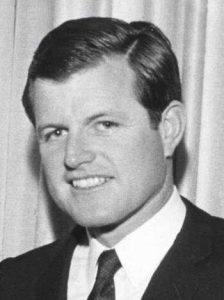
IWhen Senator Edward Kennedy was presented with the 1997 Irish American of the Year award by this magazine, the citation stated that “Kennedy is a chieftain, which is what the old Irish word taoiseach actually means. He has led the cause of Ireland on Capitol Hill for over a generation now and has often received little recognition in return. However, when the history of this period is written he will loom largest of all.”
No one played a larger role in persuading President Clinton to become a player in the Irish peace process than Kennedy, 67, and to this day he remains an invaluable advisor to the president on the issue.
He has been involved in Irish issues almost since he joined the Senate in 1962. From the outset of the Northern troubles he became the major American player, and aligned himself firmly with constitutional nationalism and with SDLP leader John Hume, a long-time friend.
In 1992 Kennedy made the courageous decision to support a visa for Sinn Féin leader Gerry Adams, which became the linchpin of the American intervention in the then fledgling peace process. Without his support President Clinton would never have taken that risky step which transformed the peace process.
At every step since in the peace process Kennedy has led the American response and he remains as influential as ever. His announcement that he would seek another term in 2000 was greeted with relief in Irish circles, where there is a clear understanding that his influence and advice will be sorely missed when he eventually decides to retire.
Jean Kennedy Smith
The Ambassador
Ireland’s President Mary McAleese praised Jean Kennedy Smith’s “fixedness of purpose” during a ceremony last year which conferred honorary citizenship on the U.S. Ambassador to Ireland as her four-year term came to a close.
Taoiseach (Prime Minister) Bertie Ahem and President McAleese had cleared the way for the honorary citizenship to be bestowed on Kennedy Smith, and announced the surprise news at a farewell party on July 4 at the ambassadorial residence in Dublin’s Phoenix Park. Ahem paid tribute to Kennedy Smith’s “immense service” during her tenure, saying, “You have helped bring about a better life for everyone throughout Ireland.” The Massachusetts native described her ambassadorial term as “the most remarkable, most exciting, most rewarding years of my life.” She stayed on in Ireland through President Clinton’s visit in September, and returned to the U.S. shortly afterwards. She is currently developing an Irish arts festival, which will be a cross-Border event featuring dance, music, visual arts, literature and theatre. The festival is planned for May 2000.
Kennedy Smith’s appointment to Ireland in 1993 earned her and the late Joseph Sr. a place in the history books when they became the first father/daughter combination to serve as ambassadors in U.S. diplomatic history. Her father had earlier served as Ambassador to Britain.
Robert Kennedy
Moral Leader
“Moral courage is a rarer commodity than bravery in battle or great intelligence. Yet it is the one essential, vital quality for those who seek change a world that yields most painfully to change . . . and those with the courage to enter the moral conflict will find themselves with companions in every corner of the world.”
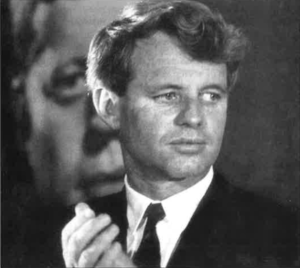
The seventh of the nine children born to Joseph and Rose Kennedy, Robert F. Kennedy was a graduate of Harvard College and the University of Virginia Law School. He began his political career as an attorney with the Justice Department and later served as counsel to a Senate committee investigating labor racketeering.
As attorney general for his brother, President John Kennedy, RFK was an indispensable partner. He threw his weight behind the Civil Rights act of 1964 and prosecuted school desegregation cases. A passionate speaker who encouraged individual responsibility, personal courage, and compassion
for those less fortunate, Kennedy had “that rarest of qualities — a clear-eyed conviction in what he knew to be right,” recalls Senator Christopher Dodd (D-CT.) a former Peace Corps volunteer.
“He spoke with a passionate intensity about the issues of the day, whether it was the tragedy of racial hatred or the wretched conditions of the American Indian, the despair of homelessness or the blight of the urban poor. He portrayed an America where justice and fairness always prevailed, and he challenged us to create that place for ourselves.”
One of Kennedy’s most memorable of speeches came after the assassination of Martin Luther King, Jr. Still struggling to come to terms with the death of his own brother, Kennedy — though warned against it by the Indianapolis Chief of Police — gravely decided to proceed as planned with a rally in the heart of that city’s ghetto. When the Senator’s car entered the black neighborhood, the police escort dropped behind, leaving Kennedy unprotected. Undaunted, he climbed on to a flatbed truck that was serving as a platform and addressed the crowd of about 1,000 people who still hadn’t heard the news of King’s death.
“He was up there,” said television correspondent Charles Quinn, “hunched in his black overcoat, his face gaunt and distressed and full of anguish. Speaking extemporaneously, in a voice choked with emotion, Kennedy told the crowd: `I have bad news for you, for all our fellow citizens, and people who love peace all over the world, and that is that Martin Luther King was shot and killed tonight.'”
Kennedy, probably the only white person in America who could have broken the news of King’s death to the largely black crowd that sorrowful night and not have caused a riot, continued: “For those of you who are black and tempted to be filled with hatred and distrust against all white people, I can only say that I feel in my own heart the same kind of feeling. I had a member of my family killed, but he was killed by a white man. But we have to make an effort in the United States, we have to make an effort to understand, to look beyond these rather difficult times.” It was the first time Kennedy had publicly mentioned the death of his brother.
When asked to name his most important accomplishment, Robert Kennedy said: “Marrying Ethel.” Together they had 11 children, the youngest, Rory, not yet born when he was killed by Sirhan Sirhan in Los Angeles on June 6, 1968, after claiming victory in California’s 1968 presidential primary.
Peter King
The Ultimate Pol
“In my mind I had no doubt I was doing the right thing. What the preisdent did was not an impeachable offense.“
It is doubtful if there has been any Irish American politician this century who has dedicated more of his time in office to seeking a peaceful resolution of the Northern Ireland problem,
Representative Peter King (R-NY) has long been an ardent supporter of Irish causes, and has traveled to Northern Ireland over twenty times. He accompanied President Clinton on his trip in 1995 and again last year. King is an outspoken advocate of human rights and justice for the people of the North and was hugely instrumental in creating a platform for Sinn Féin in the United States.
King also made history by being one of only five Republicans who voted against the impeachment of President Clinton in the House of Representatives. His close relationship with the President on Irish issues undoubtedly helped him make his choice.
In January of this year, King was named chairman of the Investigation and Oversight Committee, a sub-committee of the Banking Committee in the House. The able politician has also turned his hand to fiction-writing and his first novel, Terrible Beauty, was published this spring by Roberts Rinehart. President Clinton was spotted leaving Air Force One with a copy of the book shortly after its publication.
King was elected Grand Marshal of the 1985 New York City St. Patrick’s Day Parade, and has been honored by numerous organizations including the Ancient Order of Hibernians, the Irish National Caucus and the Irish Northern Aid Committee.
First elected to represent New York’s Third District in Nassau County on Long Island in 1992, King currently serves on the Committee on International Relations and is co-chairman of the Congressional Ad Hoc Committee for Irish Affairs. He also serves on the Committee on Banking, Finance and Urban Affairs.
Prior to serving in county government, King had extensive experience as a practicing attorney and civic leader. He began his political career in November 1977 by winning election to the Hempstead Town Council. He was also elected Nassau County Comptroller in 1981, and re-elected to the position in 1985 and 1989.
A graduate of St. Francis College in Brooklyn, King earned his J.D. degree at Notre Dame. He traces his Irish ancestors to Counties Limerick and GAlway. King and his wife have two children.
Eugene McCarthy
Poetic Pol
“The only thing that saves us from bureacucracy is its inefficiency. An efficient bureaucracy is the greatest threat to freedom.“
He is best remembered for his courageous stance against the Vietnam War, when all around him were denouncing those who opposed the military action as traitors and cowards. But millions of others soon came to realize that Eugene McCarthy, politician and poet, had been right all along.
Born in Watkins, Minnesota on March 29, 1916, McCarthy was once described by fellow Democrat Hubert Humphrey as “the son of a Minnesota farmer, handsome, witty, teacher, poet, Irish mystic, and a clever politician, cleverer for denying it.”
He taught at both high school and college level before entering the U.S. House of Representatives in 1948. Ten years later, he was elected to the Senate. McCarthy’s book The Year of the People documents his throwing down of the gauntlet in 1968 to then President Lyndon Johnson on the issue of ongoing U.S. involvement in Vietnam. He also sought the Democratic presidential nomination in that year, and although he lost, he led the way for Robert Kennedy to enter the race. McCarthy retired from the Senate in 1971, and resumed teaching two years later.
A staunch supporter of Irish causes, McCarthy appeared before the Senate Foreign Relations Committee in 1985 during hearings on the Supplementary Extradition Treaty between the U.S. and the UK. He made it quite clear, via a brief history lesson to the Committee, that he could under no circumstances support any agreement that returned IRA fugitives to Ireland or Britain.
Family, politics and history all play their part in McCarthy’s many works of poetry, for which he is almost as well known as his politics. He is also a political essayist of some note. Married to Abigail Quigley, McCarthy has three daughters and one son.
George Mitchell
The Diplomat
“The people of Ireland are sick of war. They’re sick of sectarian killings and random bombings. They’re sick of the sad elegance of funerals, especially those involving the small white coffins of children, prematurely laid into the rolling green fields of the Irish countryside. They want peace, and I believe they now have it.”
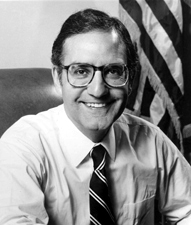
Among both Unionists and Nationalists in Northern Ireland, it is widely agreed that without George Mitchell, there would never have been a peace agreement on that Good Friday, 1998. The combination of his statesmanship, Job-like patience and willingness to make himself equally present to both sides, won the respect and trust of all parties involved.
Of Irish and Lebanese descent, Mitchell was born in Waterville, Maine in 1933. His grandfather, named Kilroy, emigrated to the United States from Ireland with his wife at the end of the 19th century. The family history is sketchy, but Mitchell believes that his grandmother died, and his grandfather, unable to look after the children, put them in an orphanage. Mitchell’s father was adopted and his name was changed from Joseph Kilroy to George Mitchell. He married a Lebanese woman, and worked as a college janitor while his wife worked the midnight shift in the woolen mills for nearly 30 years.
Young Mitchell graduated from Bowdoin College in 1954 and served two years as an officer with the U.S. Army Counter-Intelligence Corps in West Berlin. He went on to earn a law degree from Georgetown University. He became an executive assistant to Senator Edmund Muskie in Washington, D.C. but later returned to Maine to take a partnership in a law firm. After an unsuccessful run for governor of Maine in 1974, he served as U.S. Attorney and U.S. District Court Judge in his home state. When Muskie resigned from the U.S. Senate in 1980, Mitchell was appointed in his place. He easily won reelection in 1982 and 1988. In 1988 he was also elected Senate majority leader.
During his years in the Senate he established a reputation for supporting Irish-American causes. In 1994, he supported the move to obtain a U.S. visa for Sinn Féin leader Gerry Adams. When he retired from the Senate after 14 years of service, he declined an offer to sit on the Supreme Court, but interestingly enough, agreed to become the President’s special adviser for economic initiatives in Ireland, which ultimately led to his being selected to chair the peace talks in Northern Ireland.
In 1997, Mitchell’s wife, Heather, gave birth to a baby boy, Andrew, while Mitchell was still chairing the talks. One can only imagine how difficult it must have been for him to face the intractable problem of the conflict in Northern Ireland when he was an ocean away from his new son. Still, as frustrating as it often was, his commitment to the process never waned.
When the talks threatened to become bogged down in the obstinacy of both sides, Mitchell took a step that made all the difference: he set a deadline for an agreement. This worked beautifully in getting the parties to focus on making progress. As the deadline drew nigh he summoned Taoiseach (Prime Minister) Bertie Ahem and British leader Tony Blair to Northern Ireland to coax the process along, keeping President Clinton regularly updated by telephone.
Since the implementation of the Good Friday Agreement and the establishment of the Northern Ireland Assembly has become bogged down over the issue of decommissioning, Mitchell has returned to Northern Ireland to try to prevent the Agreement from falling apart. While he made it no secret that he was disappointed to have to return to Northern Ireland for this purpose, no one doubts his commitment to winning peace for Northern Ireland. If anyone can do the job, he can.
Daniel Patrick Moynihan
The Intellectual
“Irish Americans are fast becoming an invisible ethnic group, not because they are quieter or fewer in the number these days, but because they have met with extraordinary success here.“
In his 23 years of service to the U.S. Senate, Daniel Patrick Moynihan has distinguished himself with an intellectual integrity that is increasingly rare in today’s poll-driven politics. The outspoken champion of social welfare, it was Moynihan who, during the Reagan era, provided eloquent if unwelcome reminders of the people who Reaganomics had left behind.
Moynihan is widely regarded as the nation’s leading expert on social welfare, which may seem surprising given his rather patrician bearing. But his bow-tie and suspenders belie his upbringing.
The grandson of a Kerryman, Moynihan was born in Tulsa, Oklahoma and raised in Hell’s Kitchen on Manhattan’s West Side, spending vacations in the Irish American enclave of Rockaway Beach, Queens. He was educated at Benjamin Franklin High School in East Harlem and in New York’s public college system. After serving in the Navy during World War II, he earned a B.A. from Tufts University in 1948. He was a Fulbright Scholar at the London School of Economics and was awarded a Ph.D. from the Fletcher School of Law and Diplomacy.
He has since taught government at Harvard and served under the Kennedy, Johnson, Nixon and Ford administrations. But it is his continued involvement in social issues that reveals his loyalty to his roots. Moynihan’s background helps explain his fascination with this country’s multi-ethnic makeup, a topic about which he has written extensively, in publications including his book Beyond the Melting Pot.
After serving as Ambassador to the United Nations, Moynihan was elected to the U.S. Senate in 1976. He is scheduled to retire in 2000, leaving a void in national politics that will be hard to fill.
Not without his detractors, Moynihan is unusual in his ability to remain unswayed by them, continuing to work for what he genuinely believes is right. An ally of constitutional nationalism in Northern Ireland, he is completely intolerant of paramilitary violence, a fact that has earned him some criticism among Irish Americans. Still the Irish consulate in New York has hailed him as “exceptionally helpful on every aspect of Irish-related issues in the Congress. He has had a profound and significant impact.”
Bruce Morrison
Visa Savior
Bruce Morrison won the loyalty of thousands of Irish citizens when he authored and enacted the Immigration Act of 1990, the most comprehensive revision of the U.S. immigration law in the country’s history. This legislation included the Morrison visas, which provided immigration opportunities for at least 48,000 Irish men and women.
Less well known is Morrison’s dedication to the Northern Ireland Peace Process. In 1994, he was one of the leaders of a delegation of Irish American business people who toured the troubled Six Counties. His perseverance, and the work of others like him, played a large part in the securing of the first IRA cease-fire.
From 1983 to 1991, Morrison represented the third district of Connecticut in the House of Representatives. It was in this role that he began his work on Irish issues, serving as co-chair of the Congressional Ad Hoc Committee on Irish Affairs. He also distinguished himself as a staunch defender of human rights throughout the world.
In 1992, Morrison was chairman of the Irish Americans for Clinton-Gore and helped develop the campaign’s Irish agenda. That same year, he established the law firm Morrison and Swaine in Connecticut, specializing in immigration issues and international trade and investment. In 1993, he helped establish Americans for a New Agenda, which he also chaired.
In addition to chairing the Federal Housing Finance Board, he serves on the U.S. Commission on Immigration Reform.
Morrison holds a bachelor’s degree in chemistry from the Massachusetts Institute of Technology and a master’s degree in organic chemistry from the University of Illinois. He is a 1973 graduate of Yale Law School and resides with his wife and son in Bethesda, Maryland.
Tip O’Neill
Master of the House
“All politics is local.“
At the relatively tender age of 22, Thomas “Tip” O’Neill learned a lesson which was to resonate with him for the rest of his political career. After losing his bid for a seat on Cambridge City Council, he discovered that he hadn’t worked hard enough to secure the support of his own neighborhood. Another famous O’Neill story involves a supporter by the name of Mrs. O’Brien who voted without fail for him in every election, except the one where he forgot to call and ask for her vote. Her response to his surprised query after the election? “People always like to be asked, Mr. O’Neill.” These anecdotes and others were used by O’Neill to highlight his deep-seated belief that “all politics is local,” a motto he clung to throughout a long and successful political career.
Born December 9, 1912, in North Cambridge, Massachusetts, O’Neill was descended from Cork and Donegal stock. His paternal grandfather, Patrick O’Neill, came to New England during the Famine era at the age of 13 with his three brothers, and all began work with the New England Brick Company. His mother’s family, the Tolans, were from Belfast and Donegal. In an interview with Irish America in 1986, O’Neill proudly mentioned the fact that he owned a 65-acre farm near Lough Swilly in Donegal, a gift given to him and his wife by two of their sons.
O’Neill’s father, like his father before him, was a bricklayer, but when it came to his own children he wanted better for them. Consequently, O’Neill ended up in politics, his brother became a judge, and his sister was extremely successful in the field of education.
Growing up in Boston, three things were clear to O’Neill: the terrible indignities suffered by the Irish who faced “No Irish Need Apply” signs on arrival in the States; the suffering of those who came over on the so-called coffin ships of the time; and the importance of a United Ireland.
O’Neill entered the Massachusetts House, a staunch bastion of Republicanism, in 1936. Slowly, the tide turned, and by the time World War II ended, the House was Democratic, with O’Neill elected Speaker in 1948. He entered Congress in 1953, filling the seat that had become vacant when John F. Kennedy entered the Senate. From 1971-’73, O’Neill served as Majority Whip; he was also Majority Leader from 1973-’77; and Speaker from 1977-’87. He resigned from Congress in 1987. “One of the things I got right was to get out when I did,” he said later. “I left before I got pushed.” He died in Boston on January 5, 1994, less than a month after his 81st birthday.
Ronald Reagan
The Great Communicator
“Heroes may not be braver than anyone else. They’re just braver five minutes longer.”
Ronald Reagan was hardly the first Irish American to make it to the White House, but he is perhaps the only President who could match JFK for charisma.
A staunch conservative, he quickly became the kind of Commander-in-Chief that people either loved or hated and is still remembered as one of the most persuasive leaders this country has seen.
Born February 6, 1911, in Tampico, Illinois, to John Edward Reagan and Nelle Wilson, Reagan was raised in the faith of the Christian Church, a Presbyterian outfit, like his older brother John. His brother, however, was christened, unlike Reagan, and later returned to Catholicism. Reagan’s father was an alcoholic, which led to some tough times for the family when he found it hard to hold down a steady job. His grandfather, Michael Reogan (he later changed the name to Reagan) had left his native Tipperary in the early 1880s. He originally made his way to England where he met and married Katherine Mulcahy, and the couple emigrated to the States.
After graduating from college, Reagan began work as a radio sportscaster. During a trip to California in 1937 with the Chicago Cubs baseball team, he played hooky long enough to secure himself a screen test, which quickly led to a 30-year career in movies and television.
Originally a Democrat, like many of his fellow actors, Reagan gave his first political speech in 1945 at Hollywood Legion Stadium. It was to be the first of many, and Reagan quickly became known as “The Great Communicator.” He spent several years as president and board member of the Screen Actors Guild, which heightened his political standing.
By the time he hit the state and national scene, however, he had changed colors and was supporting the Republican ethos. From 1967 to ’74 he was Governor of California, and finally gained the nomination for the presidency in 1980, defeating Democrat Jimmy Carter by a landslide. His second term followed at the expense of Walter Mondale.
Reagan’s time in office is defined by tax cuts, cutbacks in government programs, and increased spending on the nation’s military. In 1981, he survived an assassination attempt by John Hinckley, who claimed he had tried to kill the President out of love for actress Jodie Foster. After retiring from politics he returned to ranching, a life-long passion. Married to former actress Nancy Davis, Reagan now suffers from Alzheimer’s disease.
Al Smith
Big Apple Hero
“Law, in a democracy, means the protection of rights and liberty of the minority.“
He was the first Irish American Catholic Governor of New York, and a Democratic nominee for President in 1928. Regarded as the quintessential Irish urban politician, the product of generations of Tammany Hall artistry, he was named for his Italian-German father, Alfred Emanuel Smith. Young Al Smith nonetheless felt far closer to his mother’s Irish roots, and chose to identify himself as Irish American for the rest of his life. His future as a politician was perhaps indicated well in advance when, at the age of 11, he won an oratory contest held in New York City for his oration on Robespierre.
Born December 30, 1873 to Alfred Smith and Catherine Mulvihill, the daughter of an Irish father and an English mother, young Al was forced to leave school early and help support his family when his father died.
Smith learned the ropes politically from local Democrat Tom Foley, who introduced him to Tammany Hall. Foley helped Smith get a job as a process server for the commissioner of jurors, and later had the younger man picked as a Democratic candidate for the State Assembly of New York. Two years later, Smith was chosen as Speaker of the Assembly, and he went on to become widely known for his championing of various humanitarian issues.
After a devastating fire in a Manhattan clothing factory which killed 146 people, Smith sponsored legislation for the establishment of a commission to investigate working conditions in New York State factories. The commission’s findings led him to usher in much-needed legislation on health, sanitation, fire laws and working conditions in general, especially for women and children.
In 1915, Smith was elected sheriff of New York City, and he went on to bypass a run for mayor, instead focusing on the office of the governor. He won handily, and ended up serving four terms. During this time, Smith was responsible for many far-seeing acts of social reform. He sponsored low-cost housing, extended rent controls, opposed legislation which aimed to reduce the civil liberties of socialists, and fought hard to outlaw the Ku Klux Klan.
In 1920, Smith’s name was first mentioned in connection with a bid for the Democratic presidential nomination, but it would be four years before he got a bite at the apple. Failing to garner the coveted nomination that year, he tried again in 1928 and triumphed. It was a short-lived victory, however, as he lost the presidential election to Herbert Hoover. One of the reasons for Hoover’s win was his enthusiastic support for Prohibition, an action Smith strongly opposed. Smith had a couple of other strikes against him: he was Catholic and a New Yorker.
In 1932, Smith committed what many saw as the unpardonable sin: he attempted to oust Franklin D. Roosevelt, the man who had twice nominated him as the Democratic candidate, from Roosevelt’s race for the nomination. In 1936, he left many of his old friends and supporters feeling even more betrayed when he voted for a Republican. Smith died in October 1944. He was married to Irish immigrant Catherine Dunn, and they had five children: Alfred Emanuel, Emily, Catherine, Arthur and Walter.
Editor’s Note: This article was originally published in the November 1999 issue of Irish America. ⬥

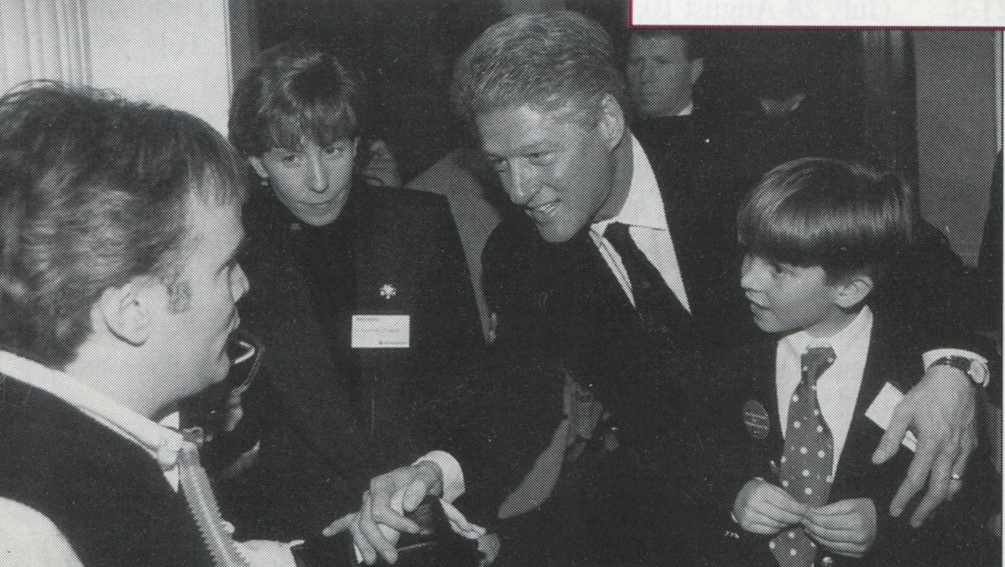
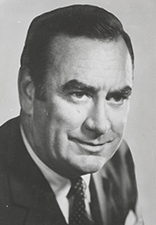
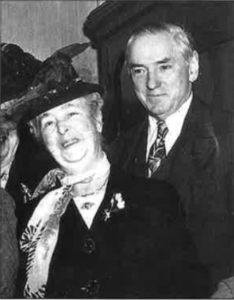
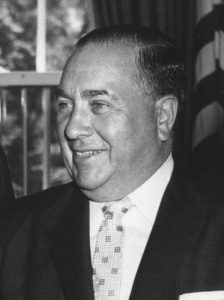
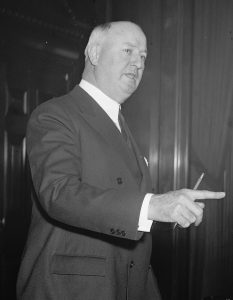
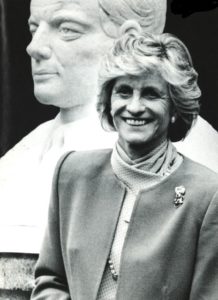
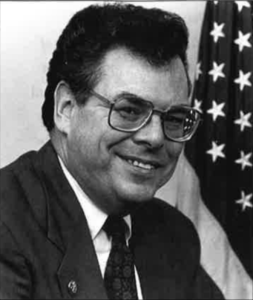
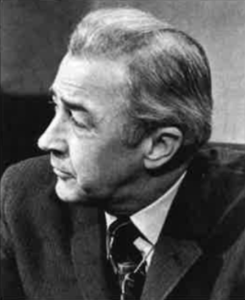
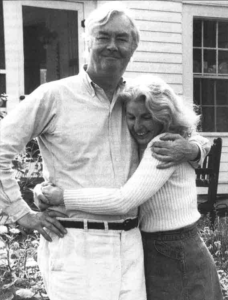
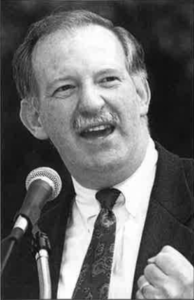
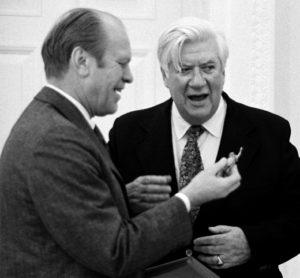
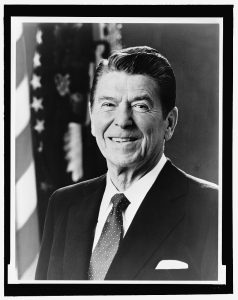
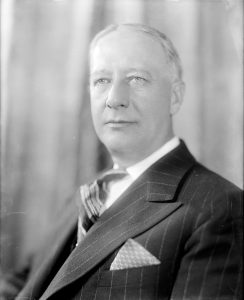
Leave a Reply